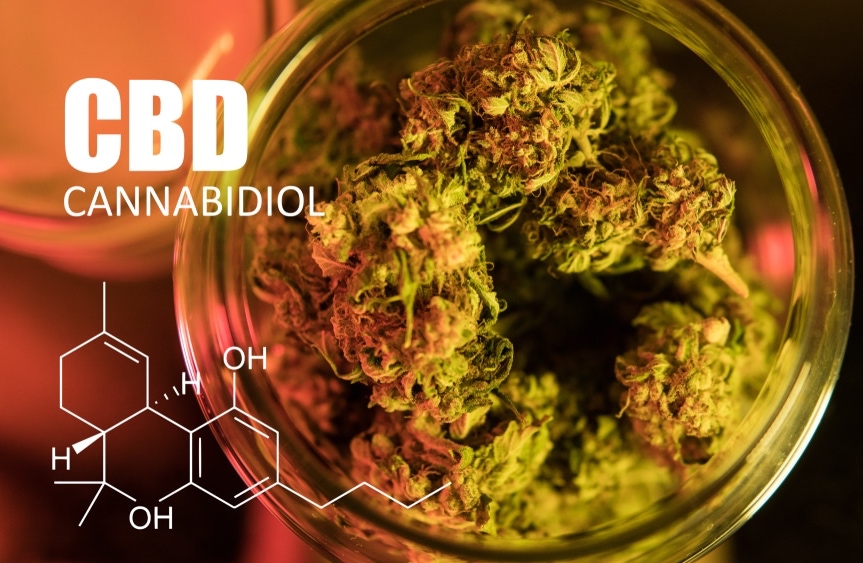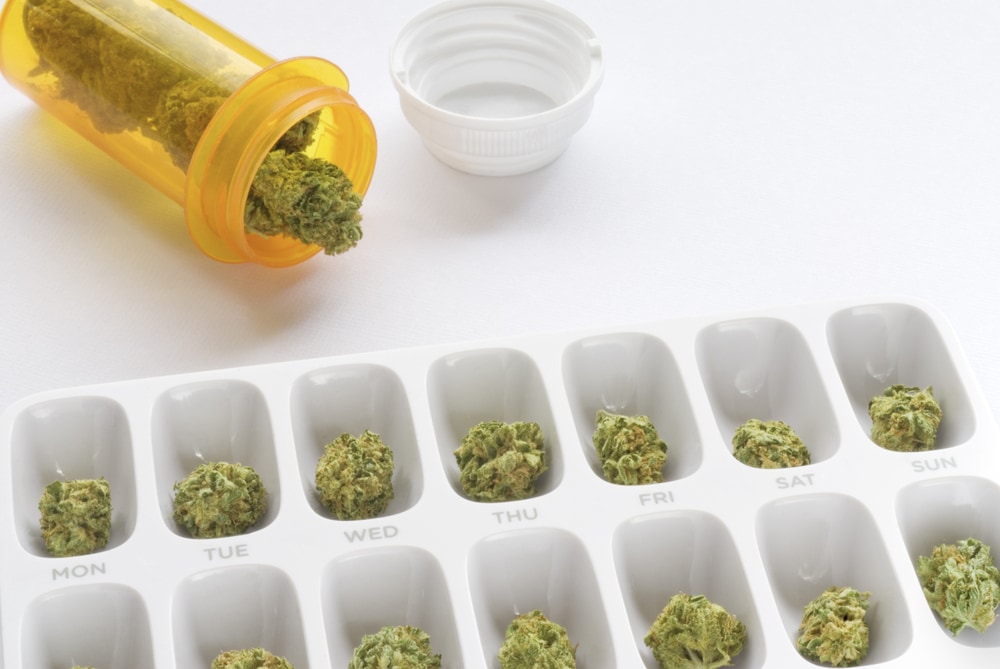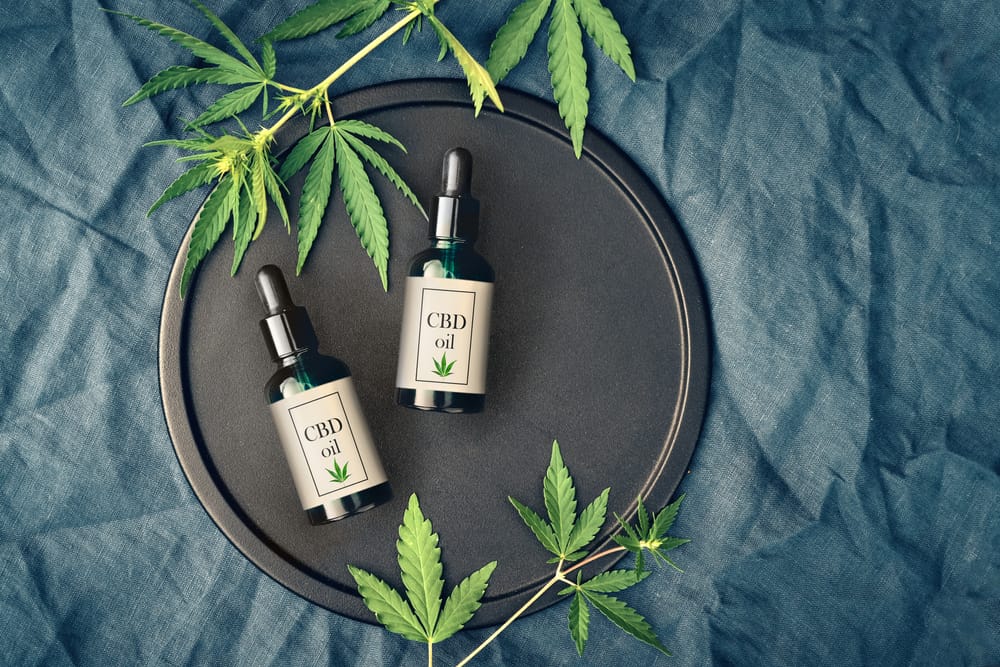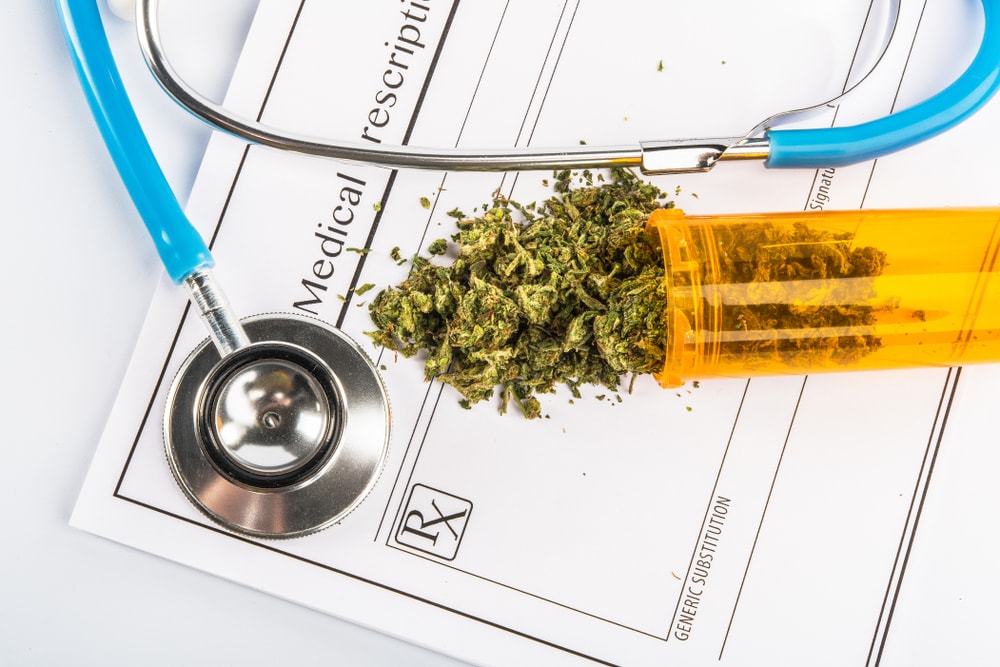Does weed relieve stress, anxiety, and help to combat depression? What strains of marijuana are helpful for stress? Are there any risks involved when consuming cannabis materials for fighting depression, stress, anxiety or it’s totally safe? If you seek the truth about the issue then keep reading the article to get the comprehensive answers to the questions.
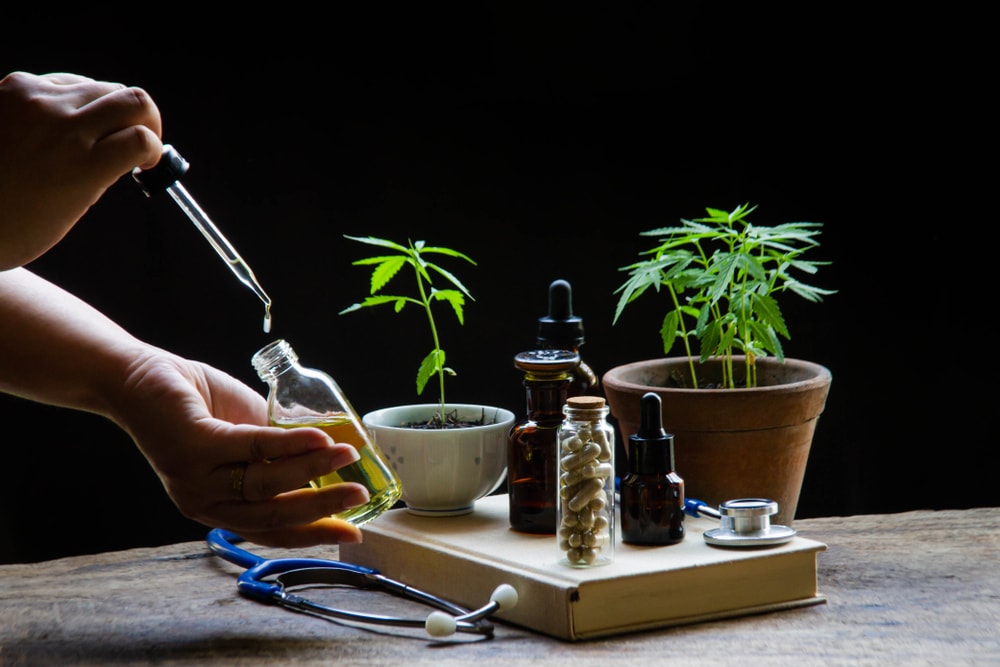
Why can cannabis be helpful for stress, anxiety, depression at all?
The chemical composition of cannabis counts dozens of elements. Yet, there are 2 primary active compounds contained in marijuana:
- THC (tetrahydrocannabinol) is the most active component with psychoactive effects and is responsible for the euphoric feeling. Thus, it’s THC that makes you feel high. The more THC in cannabis the greater the effect.
- CBD (cannabidiol) is a non-psychoactive ingredient of the marijuana that is famous for its pharmacological and calming properties. Cannabis with a high level of CBD is widely used in medicine. It is the compound of the plant that has been studied for the treatment of depression, stress and anxiety relief.
According to the study, though the pharmacological effects of the CBD, both compounds are required to help with depression and stress. Thus, CBD calms you and THC makes you feel mellow and dreamy. The ratio of the compounds also plays a key role:
- It was reported that cannabis with high CBD (>11%)/high THC (>26.5%) ratio had the largest perceived changes in stress;
- While cannabis with high CBD (>9.5%)/low THC (<5.5%) ratio was associated with the largest changes in depression.
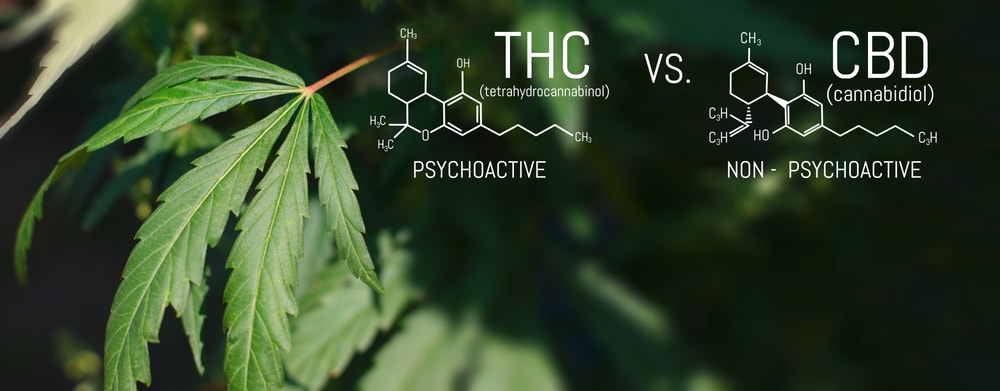
What strain of marijuana is good for pain relief and stress relief?
Does cannabis strain matter? Is indica or sativa better for anxiety? What cannabis strain to choose to combat depression? When choosing medical marijuana for stress, depression, anxiety, it’s vital to pay attention to the strain and its content along with the ratio of the active compounds.
Yes, the strain plays a key role in the effects you get as a result. So, you should choose the strain depending on what you crave to get: relaxation, energizing, uplifting, boosted creativity, sleepy, and so on.
To ease your choice and make things a little bit clear, we conducted the research and learnt over 15 strains used for medical purposes. And we’re going to share the results with you. So, here is what we’ve revealed.
| CBD and THC ratio | Effects* | Common usage | |
| Sativa | CBD 1-2% THC 7.5-26% |
Often: energized, happy, focused, euphoric, uplifted, creative Rarer: relaxed, sedated, calmed, giggly, dreamy cerebral effects |
depression, stress, anxiety, fatigue, insomnia, migraines, nausea, pain, lack of appetite, arthritis, ADD/ADHD |
| Indica | CBD <1% THC 20-23% |
Often: relaxed, sleepy, sedated, creative, hungry, happy, euphoric, uplifted Rarer: focused, energized |
depression, a loss of appetite, migraines, pain, stress, anxiety, insomnia |
| Hybrid | CBD 1-6% THC 5.5-25% |
Often: relaxed, happy, euphoric, uplifted Rarer: sleepy, sedated, giggly, focused, social, creative |
chronicle pain, calm muscle spasms, headaches, migraines, nausea, inflammation, depression, anxiety, stress, insomnia, traumatic stress |
*Effects are sorted from the most widespread to rarer reported ones
Keep in mind that every bud has its own effects and purposes. Herewith, we urge you to read content and properties of the materials before getting and consuming it. Also, it’s better to have specialised medical consultation before consumption.
Are there any risks of using marijuana for stress and anxiety?
Before you go to the coffeeshop to get some cannabis for stress/anxiety/depression relief, you should check the risks and warnings. Just because the consumption of cannabis can lead to different effects due to individual susceptibility, well-being, and so on.
- Side effects. Depending on the consumption method and your health condition as well as the dosage of cannabis, the side effects may vary from cotton mouth to strong headaches and even worse.
- Downturn. The study proceeds and the results are not conclusive, there is no guarantee that marijuana will help you to fight depression and other mental disorders or make it/them only worse.
- Schizophrenia or psychosis. Marijuana consumption can cause schizophrenia or psychosis in users at higher risk of these conditions.
Tips for treating stress and combating depression with cannabis
Don’t be afraid of the risks, it’s a caution for you so that you don’t turn the treatment into harm. Besides, here we prepare a shortlist of tips for treating stress, anxiety and battling depression with cannabis.
- CBD. As we have already mentioned, choosing cannabis strains for combating mood disorders, the bud should contain both compounds THC and CBD. However, it’s better to choose strains that have a prevailing CBD level.
- Terpenes. Cannabis contains aromatic oils known as terpenes. Choosing the strain, it’s advised to check the content of the bud and look for Caryophyllene and Linalool in it — two terpenes that are helpful with stress.
- Micro-dosing. The more not always the better. When dealing with cannabis for medical purposes, it’s better to start with micro-doses. Thus, you can avoid being too high and control the process better. It’s recommended to start with 2.5 mg only and gradually increase the dosage. Yet, keep in mind that the correct dosage for micro-dosing is subjective and individual, it’s always better to consult with a doctor.
- Smoke-free consumption. More and more health-minded consumers choose smoke-free ways, emphasizing that they bring better results. That makes vaping weed become a true trend. Besides that, you can try some cannabis edibles as a variation.
- Cannabis journal. If you experiment with different cannabis strains as well as vary the dosage, then it’s a good idea to keep a cannabis journal. There you can track what you use and what the result is, in such a way you can reveal the best type of marijuana for stress/anxiety/depression that is the most effective one just for you.

So, cannabis for stress, depression, anxiety — yes or no?
According to the new study that is conducted by WSU (Washington State University) scientists, marijuana can be useful for stress, depression, anxiety, and other disorders. The highlight of the study is its novel approach. So that all the data from thousands of medical cannabis users is collected by means of the special app. It means that the data is obtained from real-life situations, not in tightly controlled, artificial environments.
The results are the following:
| Symptom ratings were reduced in | Symptom ratings were increased in | Symptom ratings were not changed in | |
| Depression |
89.3%
|
3.2% | 7.5% |
| Stress | 93.3% | 2.7% | 4% |
| Anxiety | 93.5% | 2.1% | 4.4% |
However impressive the study results are, don’t self-medicate! As it was stated in the early stages of the research, marijuana is helpful in the short-term but can make depression/stress/anxiety even worse in the long-term perspective.
Herewith, it’s always better to consult with your doctor to get prescription marijuana for anxiety, stress, depression, or any other symptoms. It’s because only the professional can determine the period of using cannabis for stress/depression/anxiety/pain relief.
Is it possible to relieve stress, anxiety, or depression without getting high?
Yes, it’s possible when choosing CBD oil, extracts, or specific strains. However, the results can differ. As stated in the research conducted by WSU, the strains with both THC and CBD are more effective in combating mood disorders. So why not try microdosing first?
How can I find out if I’m in the high-risk patient group of getting schizophrenia or psychosis and cannabis depression treatment is not for me?
The best option for you is to consult a doctor and check if you are well-suited for the treatment before you start using cannabis to fight depression.
What’s more, it’s better to refuse smoking cannabis and choose another healthier way of consumption like vaping, eating, etc. in case you want to battle depression and other mood disorders. However, the results of the study are not concluding. So, keep reading our blog to stay current about the issue.
